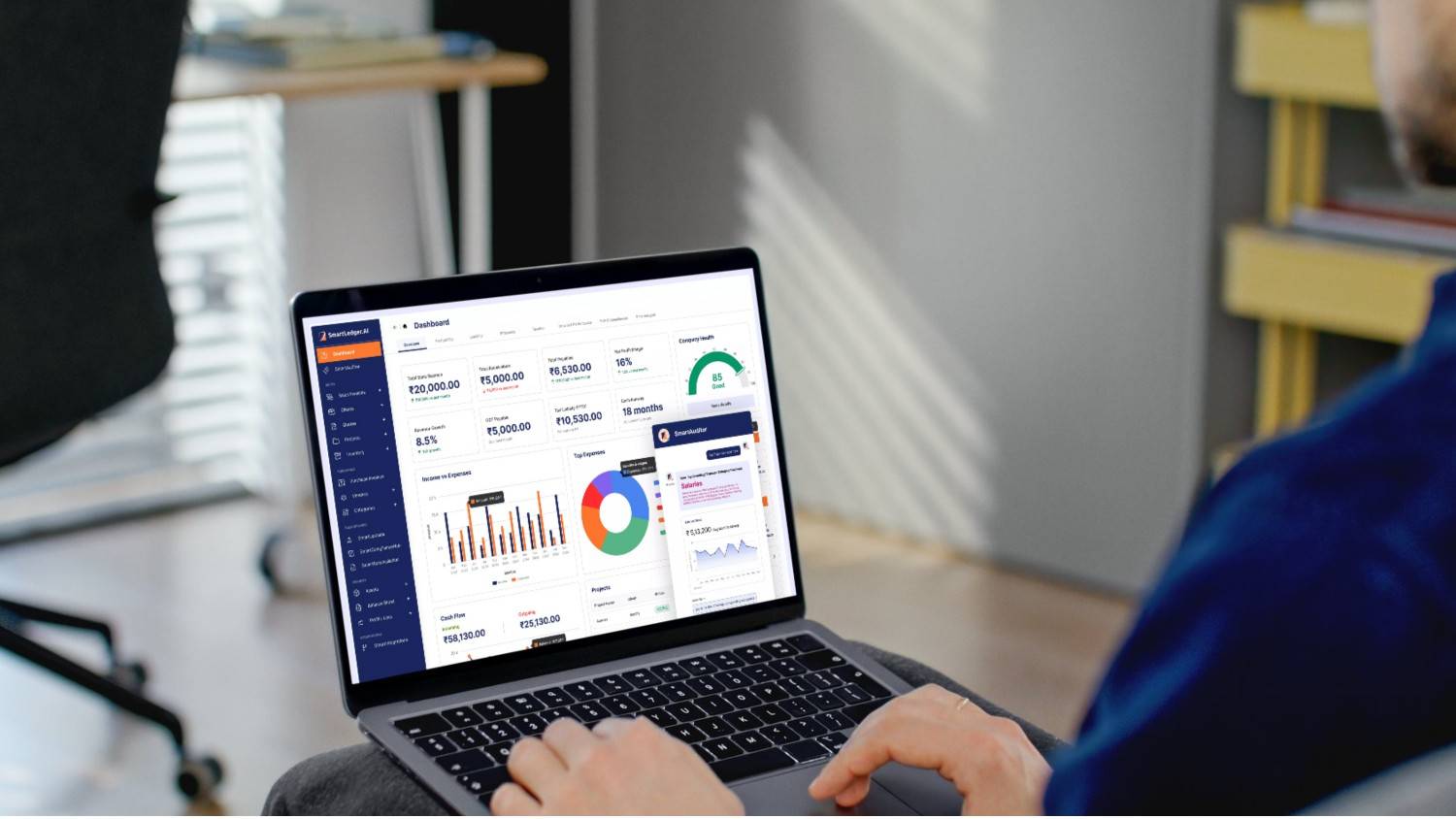

.webp)
Introduction: Is Manual Data Entry in Bookkeeping Becoming Obsolete?
For decades, bookkeeping meant manually entering every transaction, reconciling bank statements, and keeping up with compliance paperwork. However, 90% of accountants believe automation is significantly reducing manual data entry as businesses embrace AI-driven solutions. With India rapidly digitizing its financial ecosystem, the move toward automated bookkeeping is not just a trend—it’s a necessity.
Manual bookkeeping is riddled with inefficiencies, from delayed reporting to human errors that can result in compliance penalties. Businesses today need faster, smarter solutions that eliminate repetitive tasks and enhance financial accuracy. Automation is reshaping bookkeeping, streamlining processes, and enabling businesses to focus on growth rather than data entry.
Why Manual Data Entry is Becoming a Thing of the Past
Manual data entry is time-consuming and prone to errors. A small mistake in financial records can lead to incorrect tax filings or discrepancies in cash flow. Businesses that rely on traditional bookkeeping often spend excessive time reconciling records, increasing operational costs. Errors not only delay financial reporting but can also result in compliance risks and penalties.
Indian businesses face frequent regulatory changes, particularly in GST filings, TDS deductions, and financial audits. Manual processes increase the risk of missing tax deadlines or miscalculating liabilities. Automated bookkeeping software ensures real-time compliance tracking, minimizing risks associated with non-compliance, tax errors, and delayed filings.
As businesses expand, financial transactions increase in volume and complexity. Manual bookkeeping struggles to keep up with high transaction loads, requiring businesses to hire additional staff to manage financial records. AI-powered solutions eliminate the need for manual tracking, allowing businesses to scale effortlessly.
How Automation is Transforming Bookkeeping
AI-based bookkeeping software automates invoice tracking and payment reconciliation. Instead of manually entering every invoice, AI scans receipts, extracts relevant data, and updates financial records instantly. Automated reconciliation ensures that transactions match bank statements, eliminating errors and reducing mismatches.
GST filings require accurate invoice matching, real-time tax calculations, and compliance with changing regulations. Automated bookkeeping tools integrate directly with GSTN, making it easier for businesses to file returns without manual data entry. This eliminates mismatched invoices and ensures timely tax payments.
AI-powered bookkeeping systems detect duplicate invoices, unauthorized transactions, and financial discrepancies in real time. Businesses can set up AI-driven alerts for suspicious activities, improving financial security and reducing the risk of fraud.
Unlike traditional bookkeeping, which requires manual compilation of financial reports, automation provides real-time dashboards and analytics. Businesses gain instant insights into revenue, expenses, and cash flow, enabling faster, data-driven decision-making.
The Benefits of Automation in Bookkeeping
Businesses that switch to AI-powered bookkeeping experience greater accuracy as AI reduces human errors and incorrect entries. Automated systems generate reports instantly, leading to faster financial reporting. AI tracks regulatory changes and ensures GST and tax accuracy, lowering compliance risks. Businesses save on hiring additional bookkeeping staff, leading to cost efficiency. Automated bookkeeping can handle growing transaction volumes effortlessly, ensuring scalability. A growing number of Indian businesses are adopting AI-driven bookkeeping software to enhance efficiency, cut costs, and stay compliant with tax laws.
.png)
How Businesses Can Transition to Automated Bookkeeping
Businesses should look for AI-powered solutions that automate invoice management, bank reconciliation, and tax compliance. The platform should be GST-compliant and integrate with existing financial systems to ensure smooth data migration. SmartLedger.AI is an AI-powered bookkeeping solution that helps businesses automate financial records, reconcile accounts, and ensure tax compliance seamlessly.
Adopting automation requires training accountants and finance teams to work with AI-driven tools. Businesses should ensure their teams understand how to leverage automated workflows, generate reports, and monitor compliance dashboards.
As financial data moves to cloud-based AI systems, businesses must ensure data security and access control. Secure encryption, multi-factor authentication, and role-based access prevent unauthorized use of financial records.
Although automation handles most bookkeeping tasks, businesses should regularly review AI-generated reports to ensure alignment with financial goals. Periodic audits validate data accuracy and detect any unusual patterns.
The Future of AI-Driven Bookkeeping
Automation in bookkeeping is constantly evolving, with AI introducing advanced capabilities like hyperautomation & RPA (Robotic Process Automation) for full automation of tax filings and audits. Blockchain-powered bookkeeping ensures secure, tamper-proof financial records. Voice & chatbot-based AI assistance provides real-time financial support.
By 2027, 80% of businesses are expected to use AI-driven bookkeeping systems, significantly reducing manual data entry and financial errors.
Final Thoughts: Is This the End of Manual Bookkeeping?
With AI-powered automation handling invoicing, reconciliation, compliance, and financial reporting, manual bookkeeping is becoming obsolete. Businesses that embrace automation gain greater efficiency, accuracy, and regulatory confidence.
AI-driven bookkeeping software allows businesses to eliminate repetitive tasks, enhance compliance, and scale financial operations effortlessly. The transition from manual data entry to automation is no longer a question of if—but when.



.webp)
.webp)













.svg)
%201%20(2).jpg)
%201%20(2).webp)
%20(2).webp)

.webp)
